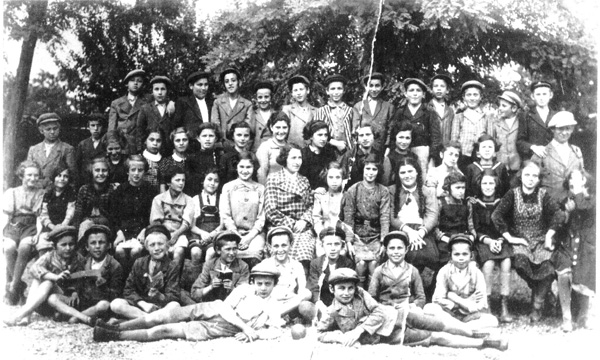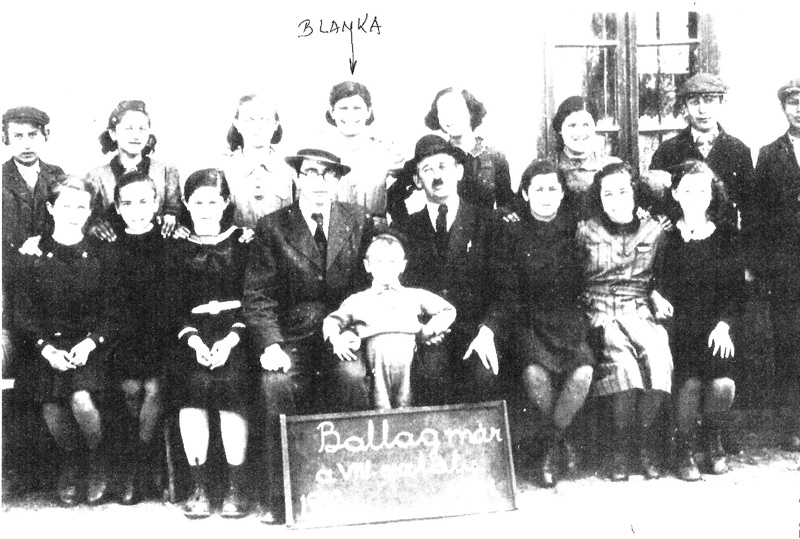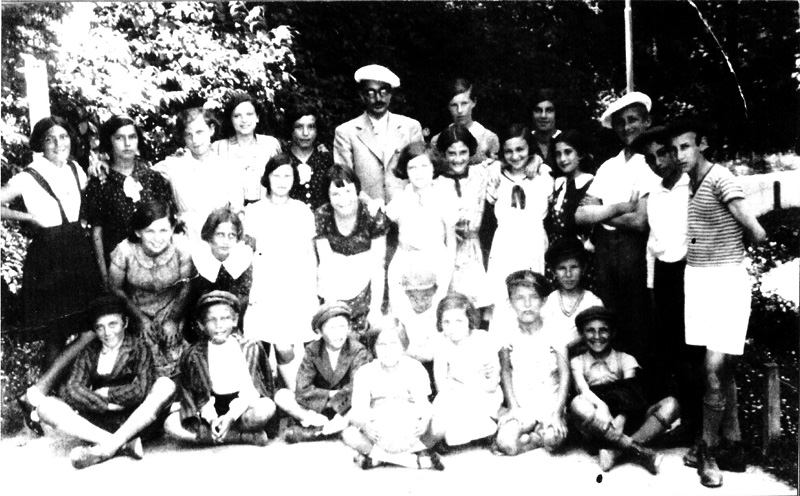| 3. Elementary School and Teachers | ||||
|
When I entered the first grade of elementary school, I already knew how to read Hungarian and Hebrew fluently, as did my two older brothers and sister. I don't remember having been taught Hungarian; I must have absorbed it subconsciously from my older siblings. I remember an episode from my early childhood. I must have been younger than five years when my mother took me tome along to visit her parents in Sopron. Because children below age five could travel free on the train, she bought no ticket for me. I was standing by the window and reading the names of the stations out loud. My mother warned me to stop this, afraid that the conductor might require her to buy a ticket for me, not believing that a boy who could already read was still under five. My father taught me to read Hebrew, obeying our Sages who advised 2,000 years ago: "At five—start reading." I was familiar with the alphabet, and numbers were no mystery to me either. I already knew how to count, as well as to add and subtract small sums. Our Jewish elementary school consisted of two classrooms, in which two teachers had to enlighten 95-100 pupils in eight grades. It would be rather complicated to describe how one teacher could simultaneously teach three grades in one classroom, and the other five grades in another classroom. Nonetheless, they always succeeded in completing the officially prescribed curriculum. Moreover, as attested to by the county superintendent, our school's ranking was the highest among the three local elementary schools, year after year.
The teacher of the three first grades was Béla Bródi, an elderly bachelor who had taught our father decades earlier, along with everyone else who finished elementary school in Nagymegyer. He was always clad elegantly as if he had just left the tailor's shop or a fashion store. We never understood how his shoes could always remain clean and shiny while we showed up in class muddy up to our knees, because at that time most streets had no paved sidewalks yet while the cart roads turned into a sea of mud after each rain. While walking in the streets, Mr. Bródi's walking cane dangled from his bent arm, but in the classroom it fulfilled an important pedagogic function. Although he was very pedantic, demanding, and kept rigorous discipline, I have the feeling that his pupils not only feared and honored but somehow also loved him. I surmise this today, from a perspective of about 75 years, because Béla Bródi was not merely a teacher, he also was a real guide and educator. He made efforts to teach us basic manners, how to behave not just at school but also on the street and even at home; how to walk on the sidewalk, and to greet the grownups we met politely. He explained to us that spitting on the floor or in the street was not only rude but also unhygienic. (This might sound strange today, but at that time it was most useful and necessary.) I remember that strange old gentleman with deep respect, which is why I elaborated on him to such an extent.
The teacher of grades 4-8 was an entirely different type. When he was in good humor, Lipót (Leopold) Blumenthal told us stories or read to us, often passages from his private library books, such as tales about bees, ants, and exotic animals from his Hungarian translation of Brehms' Tierleben (Life of Animals). Everybody liked these classes. When he was in an angry mood, he punished us by requiring us to memorize some long poem for the next day. These homework assignments were of course always chosen from the best of Hungarian poetry, such as long sections of the epic saga of Toldy, the legendary Hungarian folk hero. We were les enthusiastic about such balladeering tasks, but the "spiritual sediment" that remained of them proved to have lasting value. Thus, I remember to this very day many enchanting Hungarian poems, which I recite for my children or translate into Hebrew for my grandchildren. God bless Lipót Blumenthal for his severity!
A third teacher arrived when Béla Bródi, the old gentleman, retired. Rezso (Rudolph) Heller took over the upper grades while Blumenthal became headmaster and switched his talents to the beginners' classes. The new teacher was a handsome, athletic young man, born and raised in Bratislava. His appearance brought quite a new atmosphere into our school. He played the violin at our music classes and refereed the soccer matches, which we played during lunch breaks. Sometimes he even joined one of the teams (usually the weaker one) and played with us as equals. This never damaged our deep respect towards him. He always addressed his pupils politely, never used offending expressions, and preferred to foster learning through praise rather than reprimands. As a result, everyone made efforts not to be left behind and not to disappoint this beloved teacher. I preserve those school years as an unforgettable memory. When I discuss some scientific issue with my studious children, they often tease me, smilingly: "Daddy, did you learn this too in your two-classroom, overstuffed country school?" In summary, I can honestly state that this school with its excellent staff has plowed a deep furrow in the sensitive emotional world of my childhood.I dedicate this chapter to the precious memory of my beloved and deeply honored teachers. Béla Bródy died of old age, while Lipót Blumenthal and Rezso Heller and their families were murdered in Auschwitz. Be their memory blessed! |
||||


